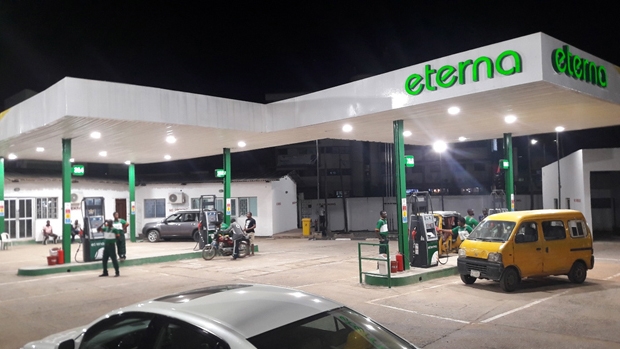Despite Nigeria’s “challenging operating environment” downstream sector of the oil and gas business, the Management of Eterna Plc has concluded plans to establish not less than 200 petrol stations in the next five years from the 35 it currently operates.
Speaking in Lagos, Managing Director, Mahmud Tukur also declared that market forces should determine the pump price of petrol as subsidy payments currently borne by government is not “sustainable”.
According to him, the incoming administration should announce full deregulation of the downstream sector when it comes into power on May 29.2019
Tukur, who spoke during a press briefing to mark the company’s 30-year anniversary explained that the company is expanding its downstream operations despite Nigeria’s “challenging operating environment”.
Tukur said Eterna’s growth plan is based on a “longer-term vision” with the knowledge that actual profit margins are at the pumps or at the point of sale.
He said the company operates at high standards at par with the IOCs coupled with local knowledge of the operating environment, thereby giving it a competitive edge in its downstream operations.
“On this, let us first look at the rise of the super independents who have now become majors. We’ve seen new majors beyond the traditional Mobil, Total etc. Now the divestment is the fact that the operating environment is challenging but as a local operator, we know how to operate in this environment,” he said.
“In fact, it tells that the company is probably in a very unique position, almost what I call ‘no man’s land,’ because we are an independent but we’re quoted. So we’re the only independent company that is listed who is not a major (oil major).
“However, we operate like a major. So our structure is like a major–our governance processes, what we bring, HSSE (Health, Safety, Security and Environment) standards, quality assurance standards, ISSO (Information Systems Security Officer) certification, ERP (Enterprise Resource Planning) deployment–all of these things points to how majors work. There’s no difference from how we operate to how Total operates. Those are the standards we aspire to.
“Working with the likes of BP Castrol again gives us a certain discipline in how we operate our business, so we are bringing that discipline along with the local content on how to operate the business.
“It takes relationships, it takes understanding, it takes a longer-term vision on the market and of course for the fact that majors are exiting, there are Nigerian companies that are taking over those operations because the market is still here, deregulation is coming whether we like it or not. People still need petrol stations.
“We are investing in an area that we know the margins are — the last mile, that is the pumps. If we need to be in a business that is sustainable, we need to be where the margins are and therefore that is where we are looking to grow.
“So we are looking not only to growth, not only to lease, not only to acquire, but also to merge. We are looking at M&A (merger and acquisition ) opportunities.
“So if there are opportunities for us to scale up via M&A, we will do it because ultimately, we have an operating capacity, an operating knowledge and discipline that we can bring to an independent operator to make their business much more sustainable.”

























